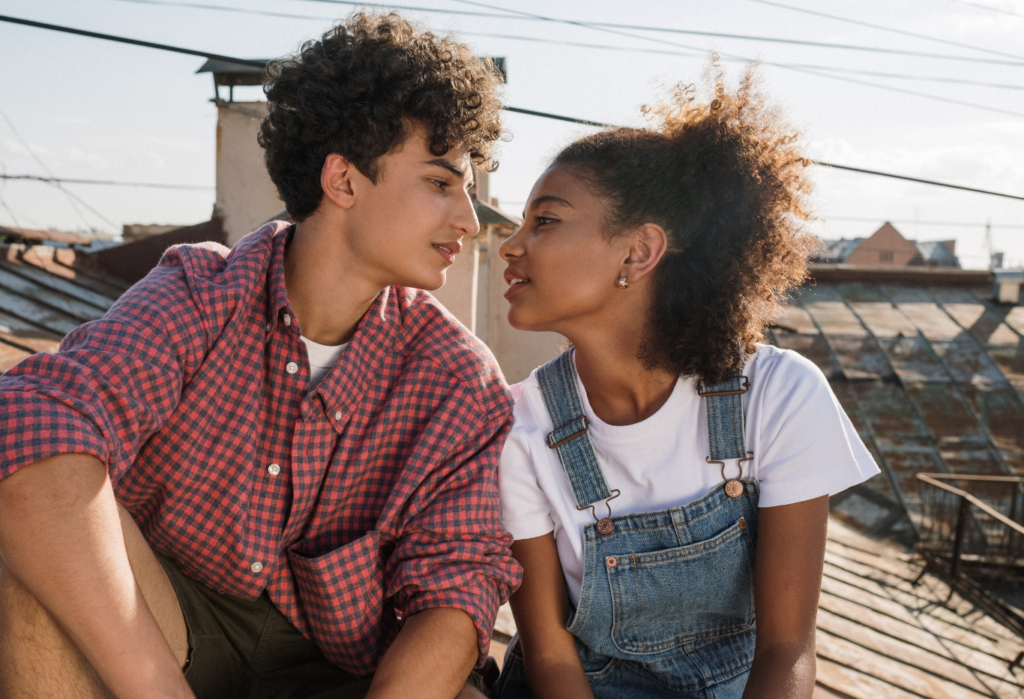Sharing your socials and locations: What’s right for you?
Should you share your socials and locations with your significant other? Is it committed or creepy? We take a look at why people share, what that means for trust and privacy, how to talk to your partner, what to do if you break up, and where to get help if you’re worried.
Is it normal for couples to share passwords?
Why do some people share accounts and passwords? And why don’t others?
All healthy relationships are built on a foundation of trust and mutual respect.
Trust means you’re open and honest with each other. You feel safe and comfortable. You can talk about anything – sometimes everything. But trust also means respecting each other’s privacy.
Some couples choose to share their logins and passwords. Others prefer to keep it private. Just because you trust someone, it doesn’t mean you have to share everything. What matters is that you both feel comfortable with whatever you decide.
If you’re feeling pressured to share your password when you don’t want to, or your partner is making you feel guilty for not giving it to them, that’s not ok. Find out more about spotting the signs of an unhealthy relationship.

Location sharing and red flags
Some couples choose to share their locations with each other. Others don’t. It’s up to you to decide what feels comfortable and right for you.
If one of you wants to share your location, but the other doesn’t, then you should respect each other’s wishes.
Not sharing your location isn’t a red flag. There can be lots of really good reasons why someone might not want to. You can keep some things private and still have a healthy relationship.
But you should never feel pressured or uncomfortable, or make anyone else feel that way. Listen to your instincts. If something doesn’t feel right, it probably isn’t.

Think about digital boundaries
Everyone has a right to digital privacy. You should be in control of what you share, when you share it, and who you share it with.
But how do you decide?
Think about what you feel comfortable with, and what’s important to you. For example:
- Is it ok to tag you or check in places together?
- Do you want your relationship status public?
- Can they friend or follow your mutuals?
- Are you happy to use each other’s devices?
You might want to share some things and not others. That’s ok.
It’s also ok to change your mind. Maybe you didn’t want to share socials and locations early in your relationship, but you want to now. Or maybe you’re worried that you’ve overshared and you want to stop.
Whatever the reason, you can change your mind. At any time.

Tips on talking to your partner
Talking about sharing, or not sharing, social and locations might feel awkward, but it’s really important to be honest. And, like trust, communication is key in a healthy relationship.
It can help to think about what you want to say beforehand.
Our top tips for talking to your partner are:
- Decide what you’re happy to share. Use our tips above to work out what feels right for you.
- Choose the right time. Pick a time to talk when you both have time and space.
- Explain what you want to do, and why. Talk to your partner about whether you do or don’t want to share. Explain your reasons.
- Listen to what they think. Give your partner space to talk through how they feel and what they think. Good communication is as much about listening as it is about talking.
- Stay calm. Sometimes tricky conversations can raise big feelings, especially if you want different things. Stay calm, and don’t react negatively. It can be a good idea to pause a chat, and come back to it later when you’ve both had more time to think.
The most important thing is that you keep communicating, and respecting each other’s boundaries.

If you’re worried about your partner’s reaction
It’s natural to feel nervous about having a tricky conversation. But you shouldn’t feel scared or like you’re walking on eggshells.
And you should never feel pressured, forced or manipulated into doing something you don’t want to do. It doesn’t matter what the other person wants, or their reasons, they should respect your boundaries.
No-one has the right to demand to see your messages, secretly look at your phone or go digging on social media. This is unhealthy behaviour, and there is never a good reason for it. Everyone has the right to privacy.
Our healthy relationships quiz can help you spot red flags and unhealthy behaviours. But if you’re worried about how your partner is going to react, talk to a trusted adult first.

What happens if you break up?
If you’ve shared your logins and locations with your partner and you break up, what should you do?
First, make a list of what you’ve shared like your socials or apps that share your location.
Then, change your passwords. Log out of your account on any devices they might have used to access your account. Remove permissions to share your location with them too.
If you’re still friendly, you might want to let them know that you’ve done this. But if you don’t feel safe, then it’s ok to just change your settings. If your ex still follows you on social media and you’re not comfortable with this, then you can also remove or block them. Take a look at your privacy and security settings.


What is an unhealthy relationship?
It can be difficult to spot when your relationship is becoming unhealthy, “toxic”, or abusive but there are some red-flag behaviours that you can look out for.



Worried that your relationship might be unhealthy or are you worried that it might even be abuse? Take our healthy relationships quiz online today 
